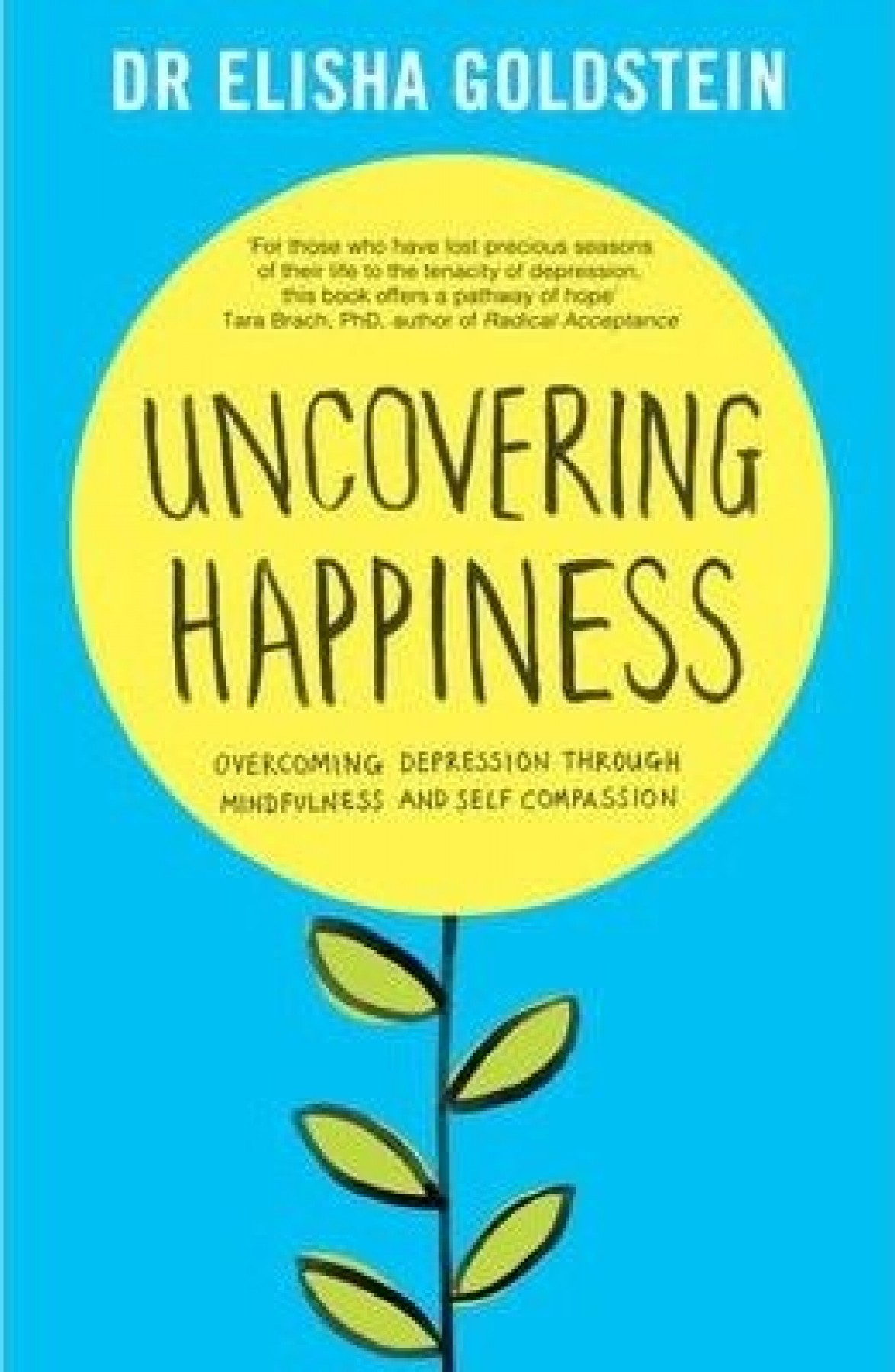In Uncovering Happiness, author and psychologist Dr Elisha Goldstein explores some of the neuroscience behind what keeps a person stuck in a depressive loop and how to get unstuck. It's not promoted as a miracle cure to replace more conventional treatment, but more so as an accessible and empowering way individuals can help themselves through practising exercises to improve self-awareness. The self-help aspect of this book seems more suited to those experiencing mild to moderate depression or low mood, those experiencing severe depression might need extra support to work through the material.
Goldstein clearly explains what depression is and how the mind works so the reader can see how easy it is to drift into a low mood unaware. He explains that a depressed brain has significantly more activity in the right prefrontal cortex than the left prefrontal cortex. The right side is associated with avoidance, negative emotions and “stuckness”. With an inactive right prefrontal cortex, it’s harder to choose healthy behaviours and regulate emotions – so the cycle goes on. The left side is associated with approaching, positive emotions and resiliency. Goldstein suggests that relapse prevention is about developing resiliency, and it is comforting that he notes you can help yourself by finding ways to actively stimulate and strengthen the left prefrontal cortex.
There are five ways you can stimulate that left side, Goldstein calls them natural antidepressants: mindfulness, self-compassion, purpose, play and mastery. Mindfulness and self-compassion are key. The science behind mindfulness shows that it can cut down on depressive relapses significantly. Using mindfulness, you can develop your resilience as you become aware of your personal depression cues and negative unconscious thoughts. Often people who have been depressed have a low degree of self-compassion and are prone to critical thinking. Self-compassion is a skill that allows you to intentionally turn the volume down on rumination and activate the self-soothing states of the brain to provide an experience of safety, courage and resilience.
Goldstein encourages you to become familiar with your own depressive loop, where you can get stuck especially if you have experienced depression before, through learned helplessness whereby your thoughts and actions lead you deeper into a depressed state. Apparently, all of us have an automatic negativity bias whereby humans are highly attuned to the dangers and negative possibilities of life, to protect ourselves. Goldstein assures you even though depression occurs as a result of a combination of genetic and environment factors, it is not who you are – it involves a conditioned habit that your brain has learned, and that your brain can unlearn. Researchers call this ability to actively rewire your brain neuroplasticity.
I loved this book. It was very encouraging and empowers you, allowing you, in your own time and at your own pace, to experiment with the ideas presented. It is easy to read and dilutes complex concepts to make them simple to understand. Uncovering Happiness is jam packed with bite-sized practical exercises and tools that can be referred to time and time again. I came away primarily with a clearer understanding of how the mind instinctively works, that at times this doesn’t work in your favour, and that there are ways you can actively work to readdress this balance.
Reviewed by Kim Higginson, Information Officer, Mental Health Foundation
I Need Help Now
Help for you or someone important to you
More

